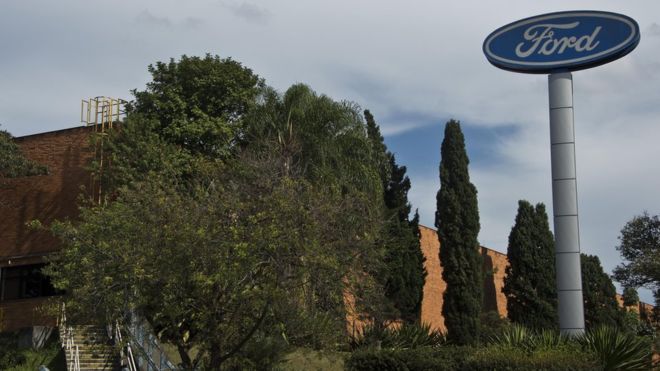
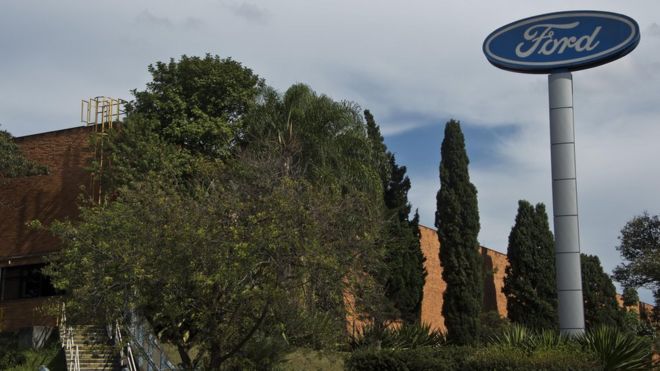 Image copyrightGETTY IMAGES
Image copyrightGETTY IMAGES
Ford has said it will close a factory in Brazil after more than 50 years as it stops selling heavy commercial trucks in South America.
The US carmaker said it saw "no viable path to profitability" for the Sao Bernardo do Campo plant, which employs about 2,800 people.
The closure is the latest move in a bigger global restructuring.
It follows warnings of thousands of job cuts in the UK and mainland Europe.
Lyle Watters, president of Ford of South America, said Ford remained "committed" to the South American region.
He said the firm was focused on improving its product offerings and implementing "a leaner, more agile business model".
About 2,800 job cuts are expected, according to labour organisations - a blow in a country where the unemployment rate is already above 10%.
"We know this action will have a major impact on our employees in São Bernardo and we will be working closely with all our stakeholders on the next steps," Mr Watters said.
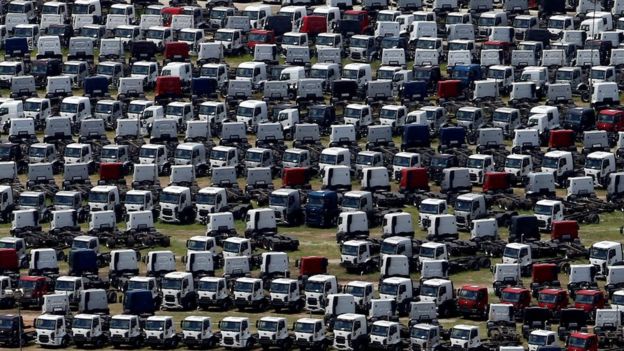 Image copyrightREUTERS
Image copyrightREUTERS
The decision to close the factory and exit the heavy truck business comes as Ford grapples with a sharp decline in profits driven by its international operations.
In South America, revenue fell 9% last year and the firm lost market share in most countries.
In addition to the Sao Bernardo closure, Ford recently stopped making its Focus car in Argentina.
The company said it had also slashed salaried and administrative costs in the region by more than 20% in the past few months.
'Major impact'
The Sao Bernardo do Campo facility currently produces Ford Cargo trucks, certain F Series trucks and the Fiesta car.
Sales of those models will end after its inventories are sold, Ford said.
The closure is expected to cost Ford about $460m, with much of those costs due to separation and termination payments for employees, dealers and suppliers.
The Sao Bernardo do Campo assembly plant is one of two Ford factories in Brazil and has been operational since 1967.
It is located near Sao Paulo, in an area with a rich history of car-making and unionised labour, which helped to launch the career of former Brazilian president Luis Inácio Lula da Silva.
BBC News

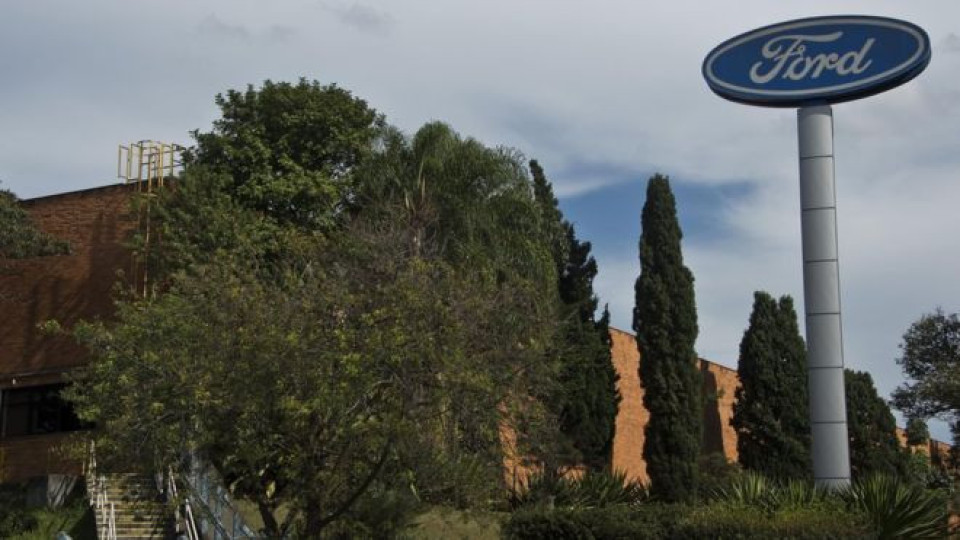
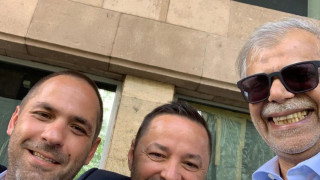




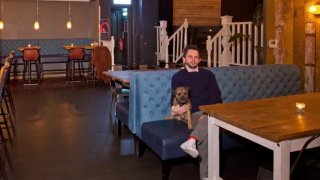

Leave a comment